Discovering What a Sustainable Way of Life Means...
When ecology, economics, and consciousness work in harmony
sustainable communities naturally emerge.
Check out the links below for a deeper understanding of the connection.
sustainable communities naturally emerge.
Check out the links below for a deeper understanding of the connection.
We're not living on this planet in a way that is possible to sustain...
But when we harmonize with nature, we begin to experience greater inner harmony as well.
Then we may think about building different kinds of houses...
Our idea for a home may not look like this architect's idea. We may decide to use scrap wood with old license plates for shingles, like a single mom in Portland did; or build a cob cottage like the British have since before Shakespeare (some of which are still standing) and several companies in Oregon are helping hundreds of families learn how to create (check out cobcottage.net); or we may take an old shipping container and insert windows and doors like folks all around the country have (check out these examples by Bob Vila). Whatever style we choose--whether it's a new or "used" home--it can contribute to a world of harmony with nature, self, and others.
And we may start looking for different ways to store energy...
We may even start producing our own FREE food. It doesn't have to be hard!
If you think watering the garden will be a hassle (or cost too much!) you might be interested in how it's been done in other times and places...
So, if you really want to get off the grid... if you want to be almost totally independent, on a city lot of 4,000 sq. ft...
Today, the world produces—mostly from low-input, small-holder farms—more than enough food: 2,900 calories per person per day. Per capita food availability has continued to expand despite ongoing population growth. This ample supply of food, moreover, comprises only what is left over after about half of all grain is either fed to livestock or used for industrial purposes, such as agrofuels.
from: https://www.localfutures.org/farming-small-planet/
Frances Moore Lappe, Jan 9, 2018
We could begin to think like Mother Nature and have an easy life...
Or think REALLY out of the box about energy...
|
|
|

Then, one day, the time comes when we realize that the whole economy can be transformed...
The Post-Growth Institute is offering a very different model of economics, with human activities being measured by their contribution to well-being or destruction...
Prosperity without Growth:
- Recognition that there are natural limits to economic, population and consumption growth and points at which further growth produces, overall, negative outcomes.
- Acceptance that, globally, we have long surpassed the natural limits of the planet to allow us to sustain further increases to material consumption.
- Commitment to restoring, protecting, and prioritizing a healthy ecosystem in order to sustain wellbeing for humans and other species, without requiring further economic growth to do so....
Living Enterprise as the Foundation of a Generative Economy
by Marjorie Kelly
“What kind of economy is consistent with living inside a living being?” This was a question posed to us under a leafy canopy, deep in the woods of southern England, not far from Schumacher College where I’d come as a teacher. I stood listening with a group of students as resident ecologist Stephan Harding posed what for me would become a pivotal question – the only question there is, really, as we negotiate the turn from the industrial age into an entirely new age of civilization.
I’d come to Schumacher to share my learnings from four years as co-founder of Corporation 20/20 at Tellus Institute in Boston, where I’d helped to lead hundreds of experts in business, law, government, labor, and civil society to explore what, at the time, seemed to me the most critical question of our day: How could corporations be redesigned to incorporate social and ecological aims as deeply as financial aims?
Over 20 years as co-founder and publisher of Business Ethics magazine, I had seen how corporations and financial markets had come to be the dominant institutions of society, and how their profit-maximizing operating system had become the operating system of the planet. That design lay at the root of many major ills facing our society... [Read more...]
These folks are experimenting with ways to pull it all together...
And so is this Brazilian farmer...
To learn more about what you can do, check out our Resources page ...
Or join in on our projects exploring the changes needed for a sustainable culture...
Here are some samples of what Dr. Miller talked about in the GLSI New Culture webinar:

